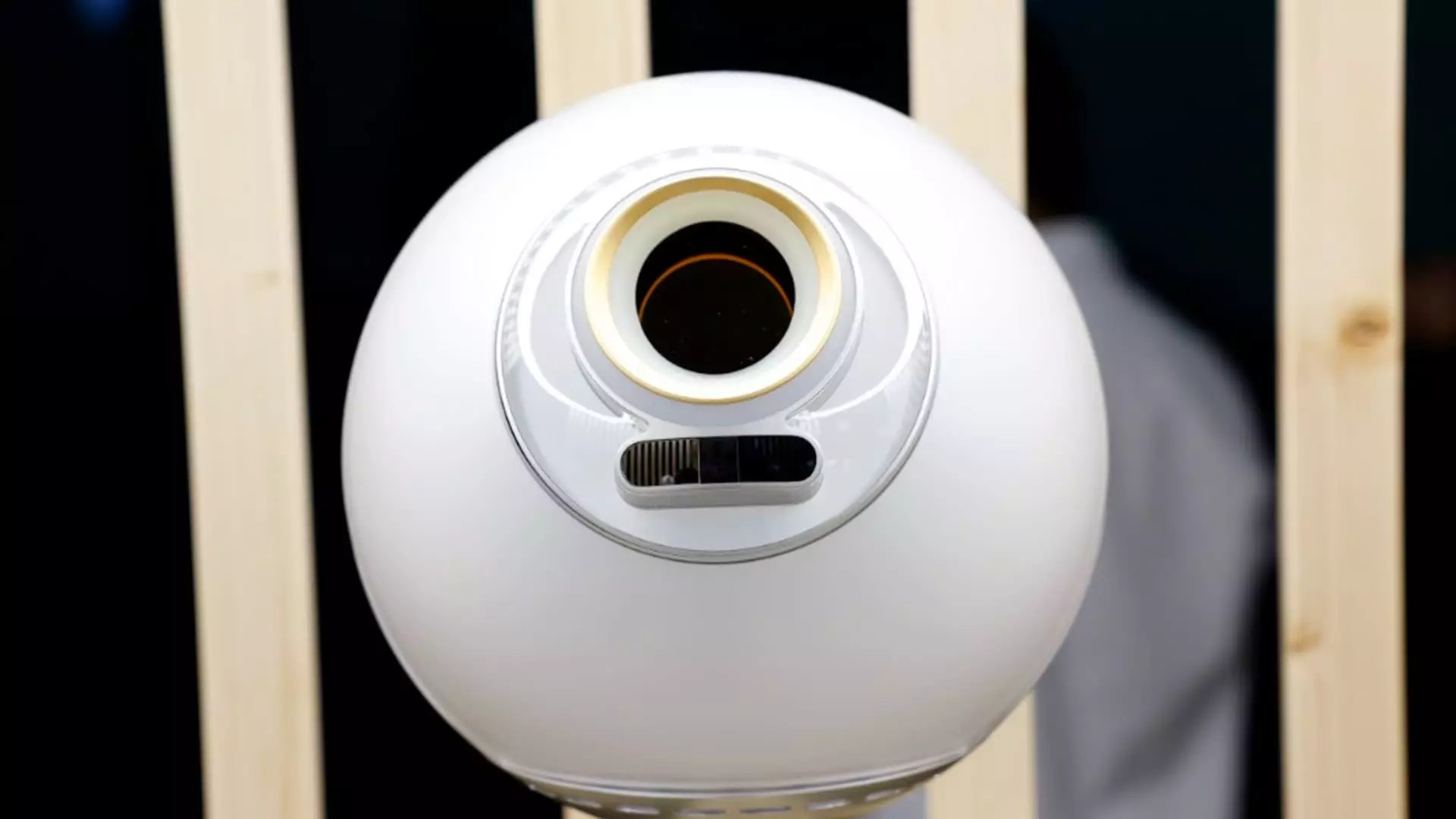This week marks a significant milestone in the realm of biometric identity verification with the launch of World in the U.K. Spearheaded by OpenAI CEO Sam Altman, World employs a unique spherical eye-scanning device, aptly named the Orb. It aims to authenticate human identity in a world increasingly plagued by deepfakes and other forms of digital deception. While the concept appears tantalizing—an advanced method for securing personal identity through biometric technology—the potential risks entailed in this innovation cannot be overlooked. With a mind-boggling potential for misuse, is this technology the future, or are we simply carving avenues for further privacy erosion?
Changing the Landscape of Verification—But at What Cost?
World operates by analyzing iris patterns and facial features to generate a one-of-a-kind code that acts as a verification marker for users. The prospect of individuals being able to seamlessly verify their identities on platforms like Minecraft, Reddit, and Discord is undoubtedly appealing. Still, the underlying technology catalyzing these advancements—biometrics—brings a myriad of ethical considerations to the forefront. When we entrust our most intimate data, like biological markers, to a tech company, we open the floodgates to potential exploitation, hacking, and loss of privacy.
The project aims to combat the fraud that arises from these advanced AI techniques, yet one must ponder whether the solution presents more dangers than the problems it seeks to resolve.
World’s Practicality and Growing Demand
According to Adrian Ludwig, chief architect at Tools for Humanity, World is tapping into a pressing market need, with notable interest from both enterprises and governments seeking to bolster their security measures. In a time when different sectors—including banking, online gaming, and social media—are under incessant threat from AI-driven fraud, the project has been framed as an elegant panacea. However, one must interrogate the effectiveness and sustainability of such a centralized approach to identity verification, particularly when the scale could balloon to billions of users, reminiscent of larger social networks like Facebook and TikTok.
The very essence of World’s appeal is its local processing of biometric data. Yet, in an age where technology is evolving at a breakneck pace, will local storage be sufficient to protect against increasingly sophisticated AI attacks? Can we truly safeguard our identities while unraveling the intricacies of such a potent tool?
Decrypting the Privacy Paradox
A woefully overlooked aspect of the biometric realm is an individual’s right to privacy. The apprehensions surrounding World are palpable, especially given that it claims to delete original biometric data after encryption. While this might provide a certain level of comfort, can we genuinely trust tech giants to uphold their promises? The mere notion that a user’s unique biometric markers could be subject to potential leaks raises a host of questions regarding ownership and security.
Moreover, the ongoing discourse surrounding digital identification schemes, sparked by the infamous Aadhaar initiative in India, serves as a stark reminder that technology can just as easily exacerbate social inequalities. As nations race to digitalize their ID systems, can they strike a balance between providing accessibility and preserving individual rights? In short, will projects like World simply replace one set of problems with another?
Regulatory Scrutiny: A Double-Edged Sword
Ludwig’s assurances regarding World’s discussions with various regulators highlight a keen sensitivity to the legal ramifications of biometric technologies. While regulations are necessary to safeguard user interests, the debate surrounding who monitors these technologies ultimately leads us back to the question of trust. Authorities are often ill-equipped to keep pace with the rapid evolution of tech.
In ensuring that these systems do not expose users to heightened vulnerability, the onus falls on several actors—developers, governments, and the public itself. If history serves as a guide, then trusting bureaucracies to adequately oversee rapidly evolving technologies comes fraught with peril.
Technological Obsolescence and Ethical Dilemmas
The potential for AI to outsmart traditional security methods raises a vital issue: the continual need for innovation in safeguarding our identities. As we grapple with the reality of biometric verification, the tenet of ethical technology practices assumes center stage. Are current methodologies robust enough to withstand ongoing advancements in AI, or will they become obsolete as soon as they’re deployed?
Navigating this complex landscape demands a proactive stance. We cannot afford to allow convenience to supersede caution, as the implications could very well define the societal framework for decades to come. The seductive allure of World’s capabilities must not blind us to the potential pitfalls that loom large in an increasingly digital identity-dependent world.


Leave a Reply